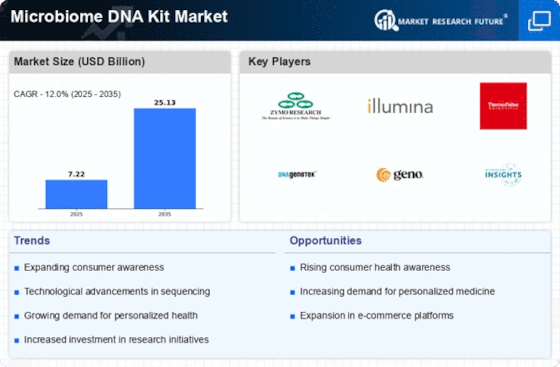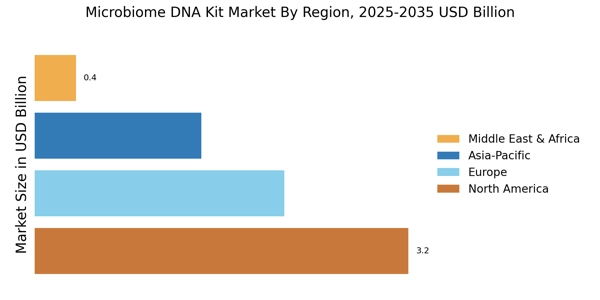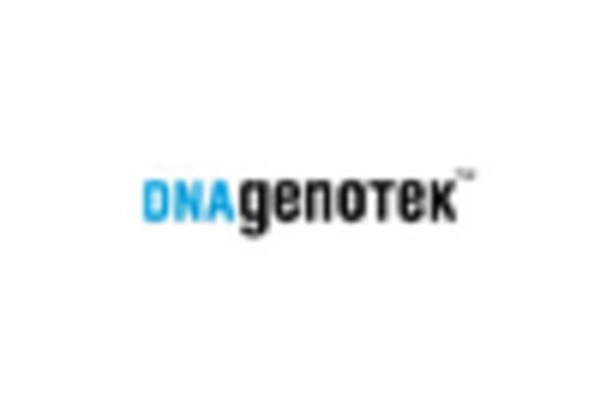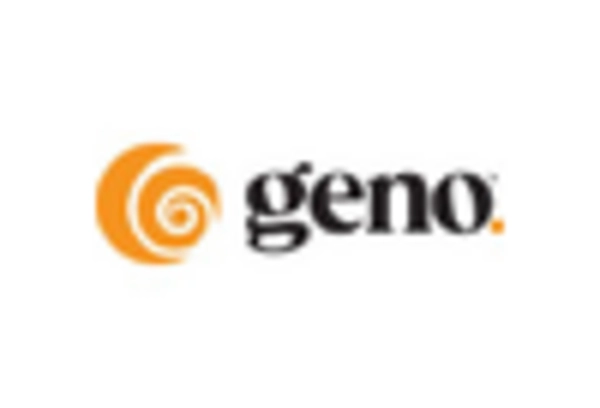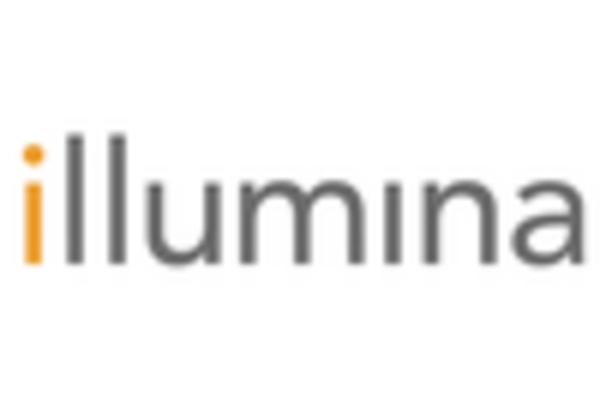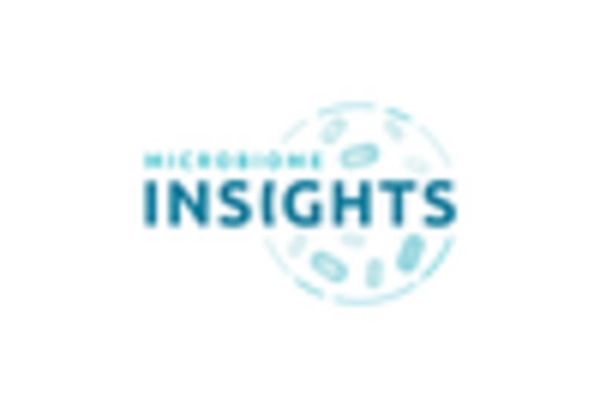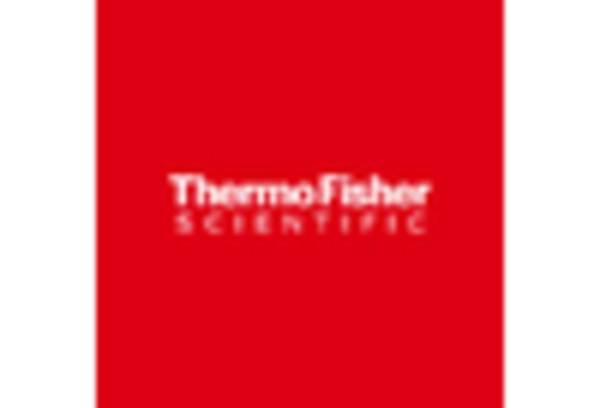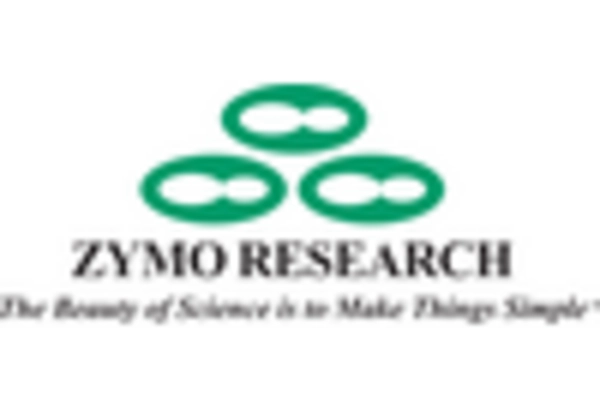Increased Focus on Gut Health
The Microbiome DNA Kit Market is witnessing a heightened focus on gut health, driven by growing awareness of the gut-brain axis and its implications for overall well-being. Consumers are increasingly recognizing the importance of maintaining a balanced microbiome for digestive health, immunity, and mental health. This trend is reflected in market data, which indicates a significant rise in the sales of probiotics and related products, suggesting a parallel increase in interest for microbiome testing. As individuals seek to optimize their gut health, the demand for microbiome DNA kits is likely to grow, positioning the Microbiome DNA Kit Market as a key player in the health and wellness sector.
Advancements in Genomic Technologies
Technological innovations in genomic sequencing and analysis are significantly impacting the Microbiome DNA Kit Market. The advent of next-generation sequencing (NGS) technologies has made microbiome analysis more accessible and cost-effective. These advancements allow for comprehensive profiling of microbial communities, which is essential for understanding their roles in health and disease. Market data suggests that the NGS market is expanding rapidly, with projections indicating a compound annual growth rate that could exceed 20% in the next few years. This growth in genomic technologies not only enhances the accuracy of microbiome assessments but also encourages research and development in the Microbiome DNA Kit Market, ultimately leading to more sophisticated and user-friendly products.
Rising Demand for Personalized Medicine
The Microbiome DNA Kit Market is experiencing a notable surge in demand for personalized medicine. As healthcare shifts towards individualized treatment plans, the role of microbiome analysis becomes increasingly pivotal. Consumers are becoming more aware of how their unique microbiome profiles can influence health outcomes, leading to a growing interest in microbiome testing. This trend is supported by data indicating that the personalized medicine market is projected to reach substantial figures in the coming years, further driving the need for microbiome DNA kits. The ability to tailor treatments based on microbiome data not only enhances patient outcomes but also fosters a more proactive approach to health management, thereby propelling the Microbiome DNA Kit Market forward.
Growing Interest in Preventive Healthcare
The Microbiome DNA Kit Market is benefiting from a growing interest in preventive healthcare. As consumers become more proactive about their health, there is an increasing demand for tools that can provide insights into their microbiome and its impact on health. Preventive healthcare strategies are being embraced by a larger segment of the population, with microbiome testing emerging as a valuable component of these strategies. Market data indicates that the preventive healthcare market is expanding, with projections suggesting a significant increase in consumer spending on health-related products and services. This trend is likely to drive the demand for microbiome DNA kits, positioning the Microbiome DNA Kit Market as a crucial element in the preventive healthcare landscape.
Regulatory Support for Microbiome Research
Regulatory bodies are increasingly supporting microbiome research, which is positively influencing the Microbiome DNA Kit Market. Initiatives aimed at understanding the microbiome's role in health and disease are gaining traction, with funding opportunities and grants being made available for research projects. This regulatory support not only fosters innovation but also encourages collaboration between academia and industry, leading to the development of new microbiome DNA kits. Market data indicates that investment in microbiome research is on the rise, suggesting a robust future for the Microbiome DNA Kit Market as new discoveries pave the way for advanced testing solutions.


